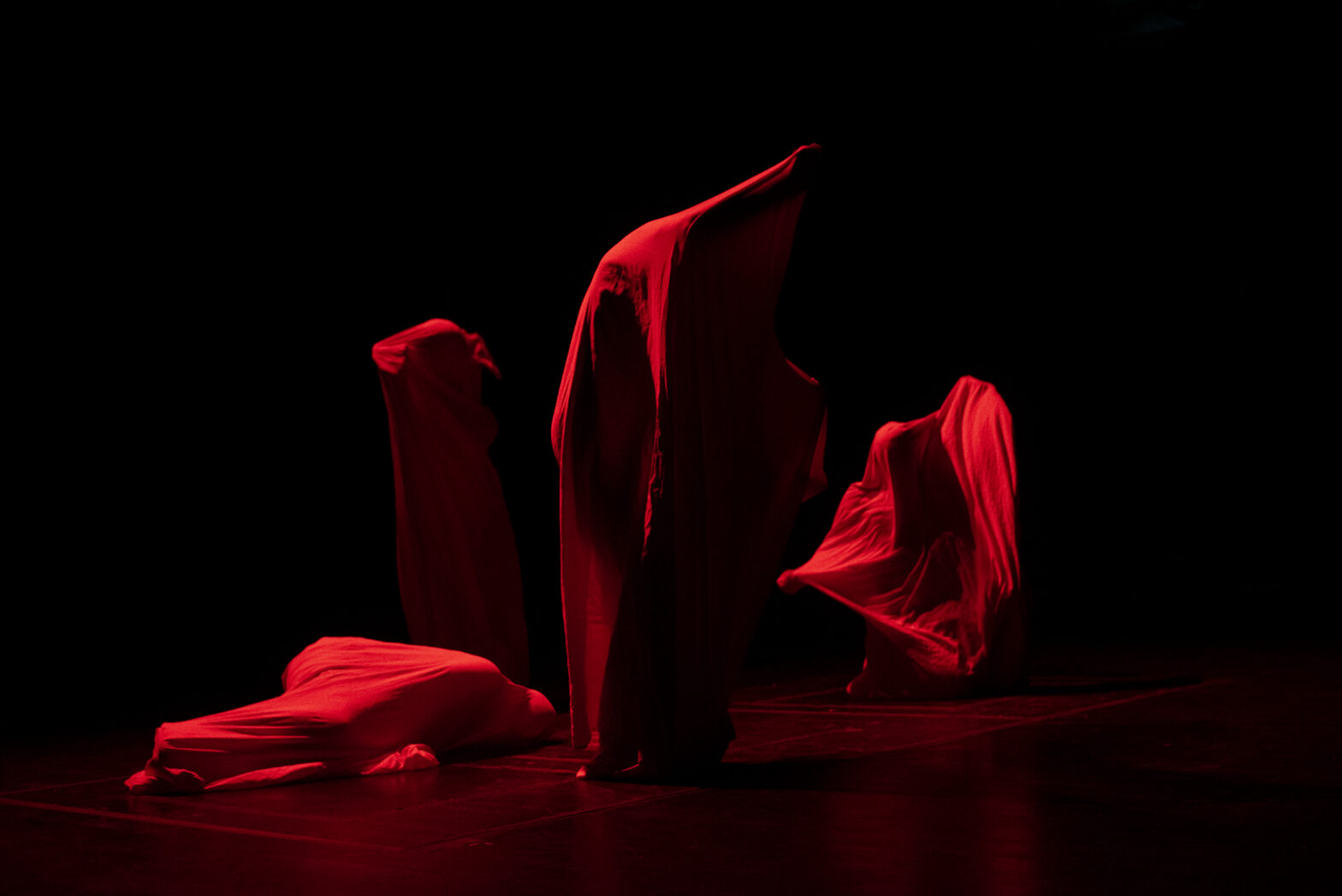Tobiáš Waller
Translation: Karolína Průšová
The first evening performance presented at DISK as part of the Zlomvaz festival was the Polish student production Ojcowie (Fathers), in which the students of the Kraków Akademia Sztuk Teatralnych im. Stanisława Wyspiańskiego discuss the concept of fatherhood and the problems and issues associated with it. From the perspective of young and childless men, they look at what it is like to be a father and what their personal ambitions for fatherhood are.
The subject of fatherhood was chosen by Błażej Biegasiewicz, a student of directing, as part of his studies. He decided to approach it through the prism of young childless men at an age when it is common for men to already have children. The project was thus created as an author’s one, since the director chose the actors based on his personal paternal ambitions, his own experience and his experiences from childhood or adolescence. Based on this, he and four actors or potential fathers (Mateusz Grodecki, Maciej Karczewski, Filip Lipiecki, Marcin Piotrowiak) created a series of situations in which they test each other on what it is like to be a parent (they show each other how to change the baby’s diaper properly, how to bathe, etc…) They reveal their personal traumas to each other and try to define and anchor the father figure, perhaps even change and reform it.
It all begins with childbirth – four actors, accompanied by soft electronic music, hatch out of white sheets. From the muted loop of the recording, a man’s voice greets the unborn fetus – the father greets his son. One by one, the actors come out and, wearing the universal black T-shirt, shorts of the same colour and sneakers, play their reflective and reminiscent game of father. All they need are four chairs, a few props, decorations, and a projection. The stage of DISK is otherwise empty, and its entire space is available to future fathers and their longed-for visions of what fathers they would like to be. The same universal costume and minimalist set design (Alicja Kolińska) support the principle of a kind of non-theatricality, in which the actors take turns who is the son or father and when.
It’s as if it’s really just four nice young men with paternal ambitions gathered in one space, sharing their views and concerns. It’s clear that the men are speaking for themselves, not pretending anything and trying to define the model of the father they want to be.
The spatial design also goes hand in hand with the effect of clipiness, within which various scenes alternate in rapid succession, through which the creators demonstrate toxic masculinity, childhood traumas, the impacts of the absence of a father as well as their own desires, dreams and ideas about the ideal form of a father figure. Each of the actors therefore approaches the production through their own authentic experiences, which are then projected into the acting. They form individual characters interacting with each other. Above all, however, they turn inward, as if challenging and confronting their own masculinity with the question of how good a father they can be.
All four Polish actors delivered confident and experienced acting, and although the production obviously demanded it, they were also able to look very natural. However, even the acting itself varied depending on the set framework of the images – from precise and brilliant stylization (examples of cruel, helpful and understanding parenting) to civility, with which they demonstrated their own feelings and wishes in the improvised parts of the production. The hectic beginning, in which the scenes were quickly interchanged and in which the actors portrayed different and rather universal characters, gradually changed, so that at the very end there was a calming and grounding. It was as if the actors themselves were left alone with their heart-warming notions of fatherhood and were conveying their personal messages to their future children.
Gradually, through staged rough sports trainings with the father, adolescent debates about sex, physical actions oozing with confident masculinity, heartfelt monologues about the birth of their children or comic stand-up performances about breastfeeding, the actors get into their own vulnerable interior and reflect or confront themselves as potential fathers.
The mentioned principle of non-illusionism and sincerity is based on a partially documentary concept. The actors draw on their own lives and experience, many situations are improvised, and behind everything there is a strong and unquestionable motivation and vision of a good father that sets the poetics of the whole production. The scene in the second part, in which the audience is invited to ask the actors questions that their future children could ask, then closes this line.
The whole production thus feels like a personal confession and a search for one’s own point of view through which one can look at the figure of the father, and one of the strongest effects of the whole performance was the warm impression that the men had indeed found that perspective. And not only that, they were also able to deliver and defend it. Thus, the functionality of the whole, the great performances and the actors‘ unmistakable affinity with the theme ensured that the production of Ojcowie successfully ended the first day of the festival.
Akademia Sztuk Teatralnych im. Stanisława Wyspiańskiego – Błażej Biegasiewicz: Ojcowie. Directed by Błażej Biegasiewicz, set and costumes by Alicja Kolińska. Written from the performance and discussion on 8 June at DISK as part of the Zlomvaz festival.
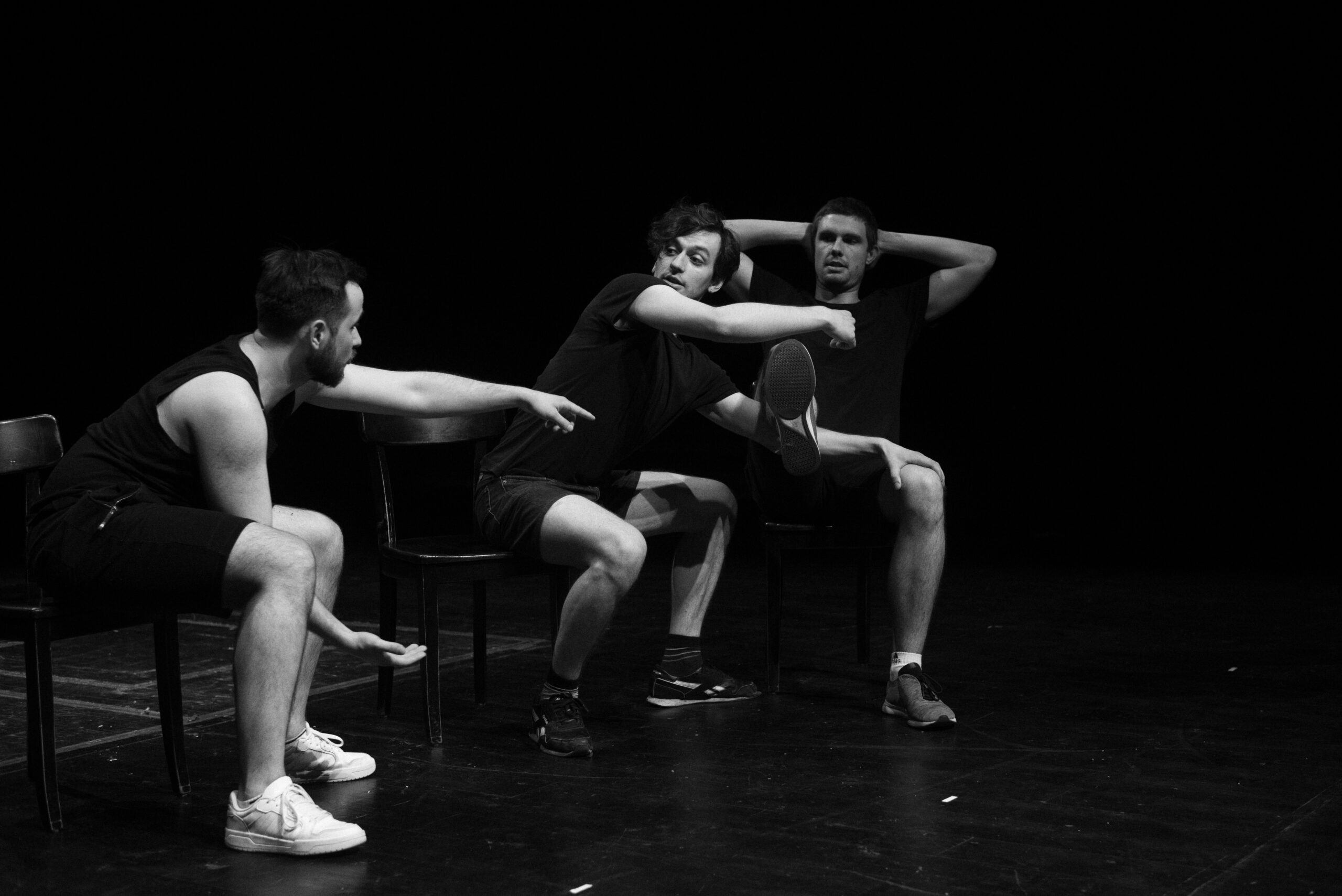
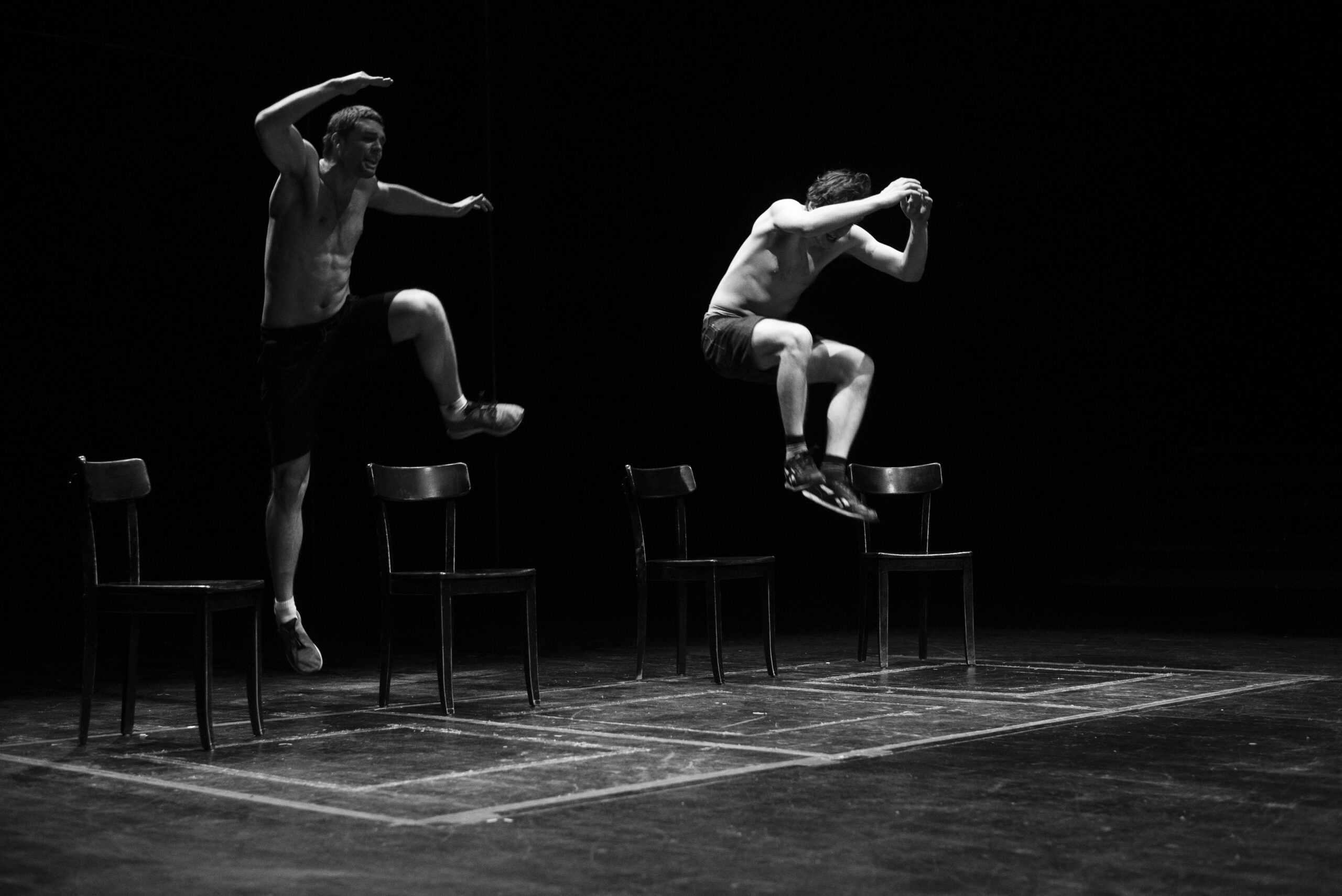
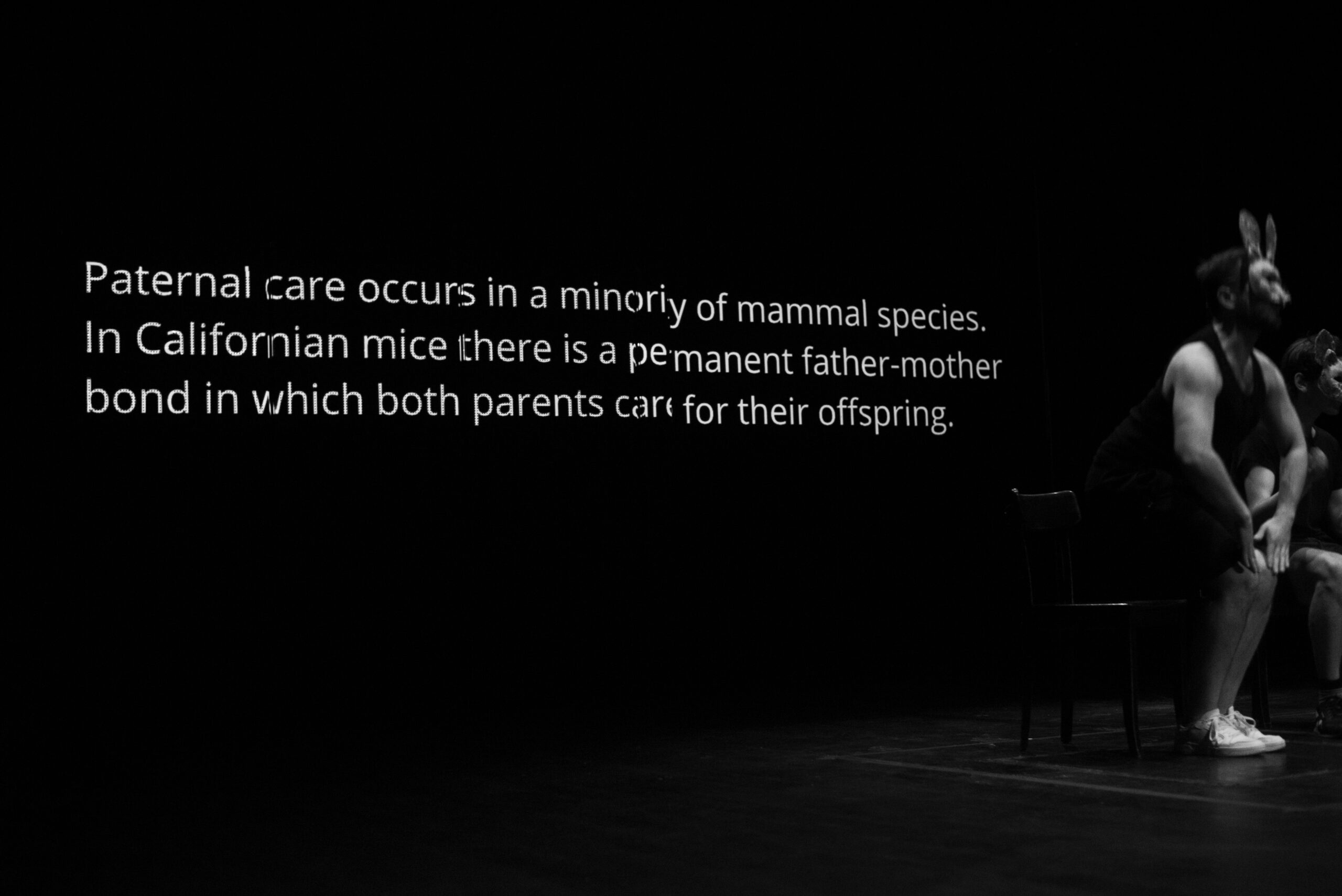
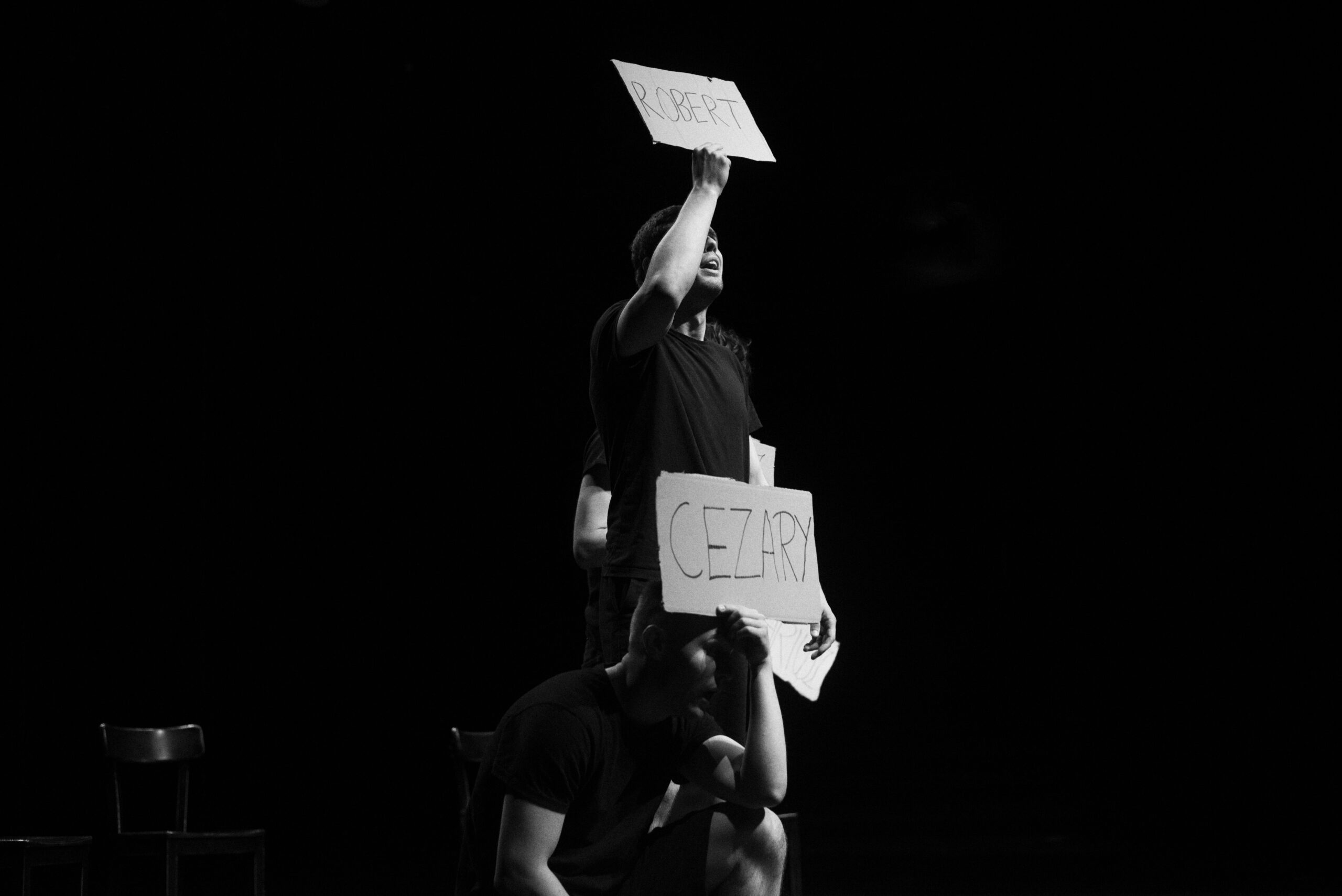
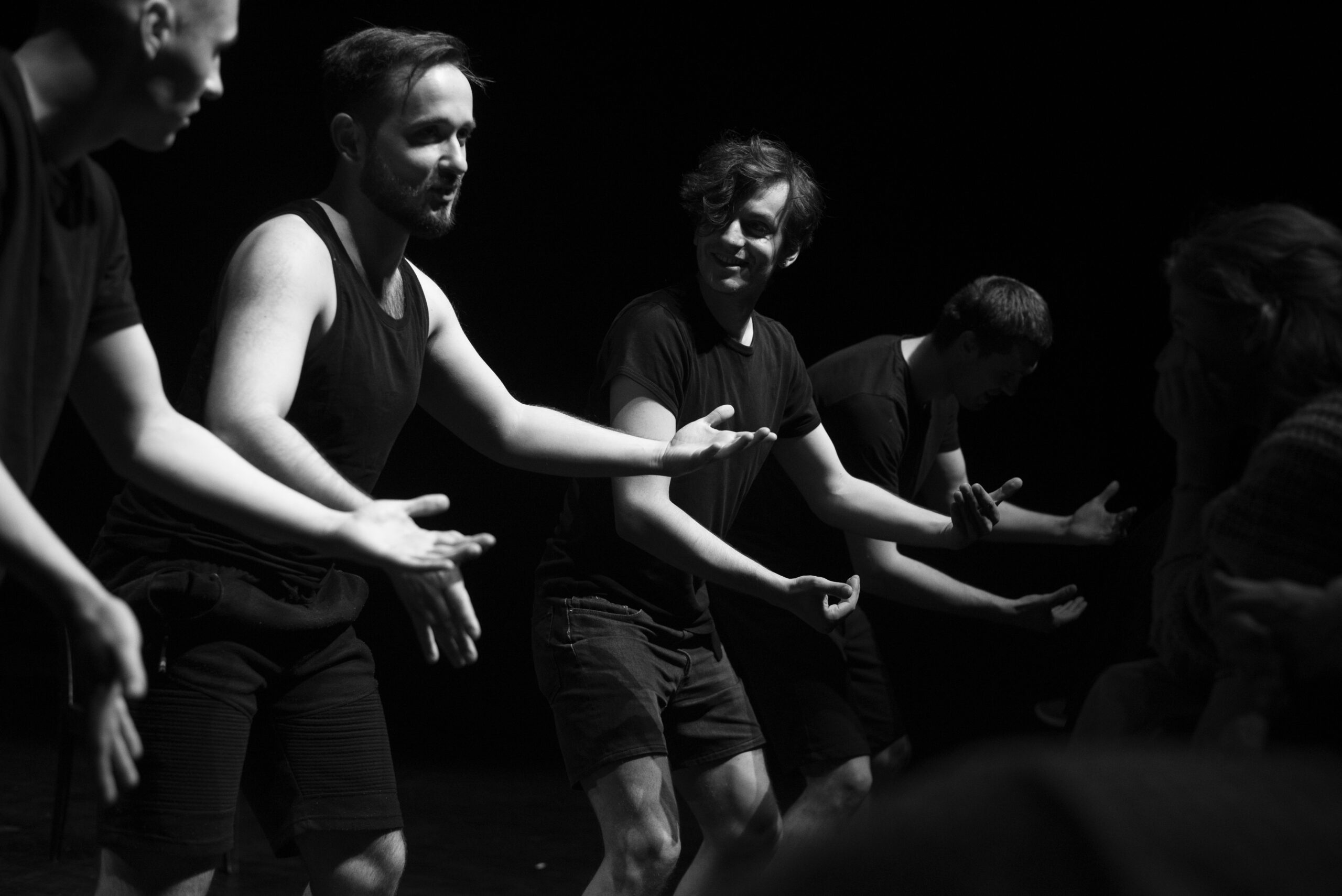
PHOTO: Alexandra Chudá

